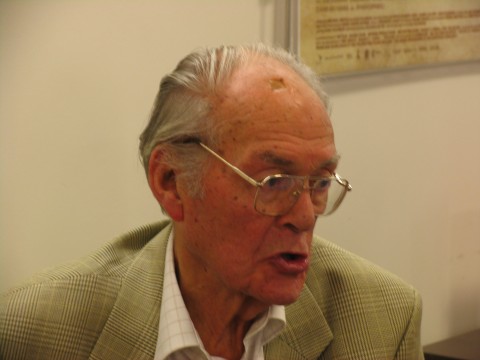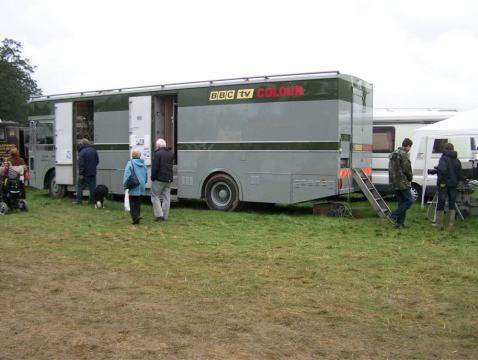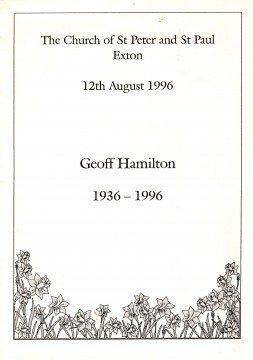Barrie Edgar sadly died recently aged 93.
Barrie was closely associated with BBC Birmingham since the very early days of radio broadcasting in the city. His father, Percy Edgar was a Birmingham concert manager who was asked to start up broadcasting in Birmingham in 1922, by the chief engineer of the G.E.C. works in Witton, which was part of the British Broadcasting Company. He supplied artists, and produced programmes. Barrie’s reaction as a young child to a story called ‘Spick and Span’ was apparently the inspiration for establishing the first ‘Children’s Hour’ broadcast, which was years ahead of the BBC in London, and produced by Percy. Barrie made his first broadcast at the age of 14, playing Tom Brown in a radio adaptation of Tom Brown’s School Days.
Barrie started working in television in 1946, when he was demobilised after the war, and in 1951 he came back to Birmingham as a television outside broadcast producer. The O.B. unit was shared with BBC Manchester. The first programme he produced was an amateur boxing contest at Gosta Green, the same building which became the BBC Gosta Green Television Studio in 1955. Barrie was based at the new Broadcasting House, in Carpenter Road in Edgbaston, which was where most programmes were made until the move to Pebble Mill in 1971. Barrie produced programmes such as ‘Gardening Club’, which became ‘Gardeners’ World’, ‘Farming’ and ‘Come Dancing’. He also produced the ‘Kings College Christmas Carols’, ‘Songs of Praise’, as well as events like General Elections, and the consecration of Coventry Cathedral.
Barrie retired from television in 1979. Barrie’s son is the playwright, David Edgar.
The following comments were added on the Pebble Mill Facebook Group:
Keith Brook: ‘Dear Barrie. Lovely man. Cool, calm and collected. That’s how directors and producers handle themselves when they understand the business. ‘
Gordon Astley: ‘Barrie was a mate of my dad, Pat Astley…and got me an interview for the Beeb via the back door. He looked after me for the first few months of a career that lasted 40 years. Lovely man.’
Pete Simpkin: ‘Wonderful broadcasting practitioner the like of which has gone for ever. I really enjoyed interviewing such a terrifically talented man on Radio Birmingham/WM and also remember him taking charge of the garden at Pebble Mill….how many retired producers of standing would do that?’
Lynda Kettle: ‘An extremely wonderful gentleman!’




